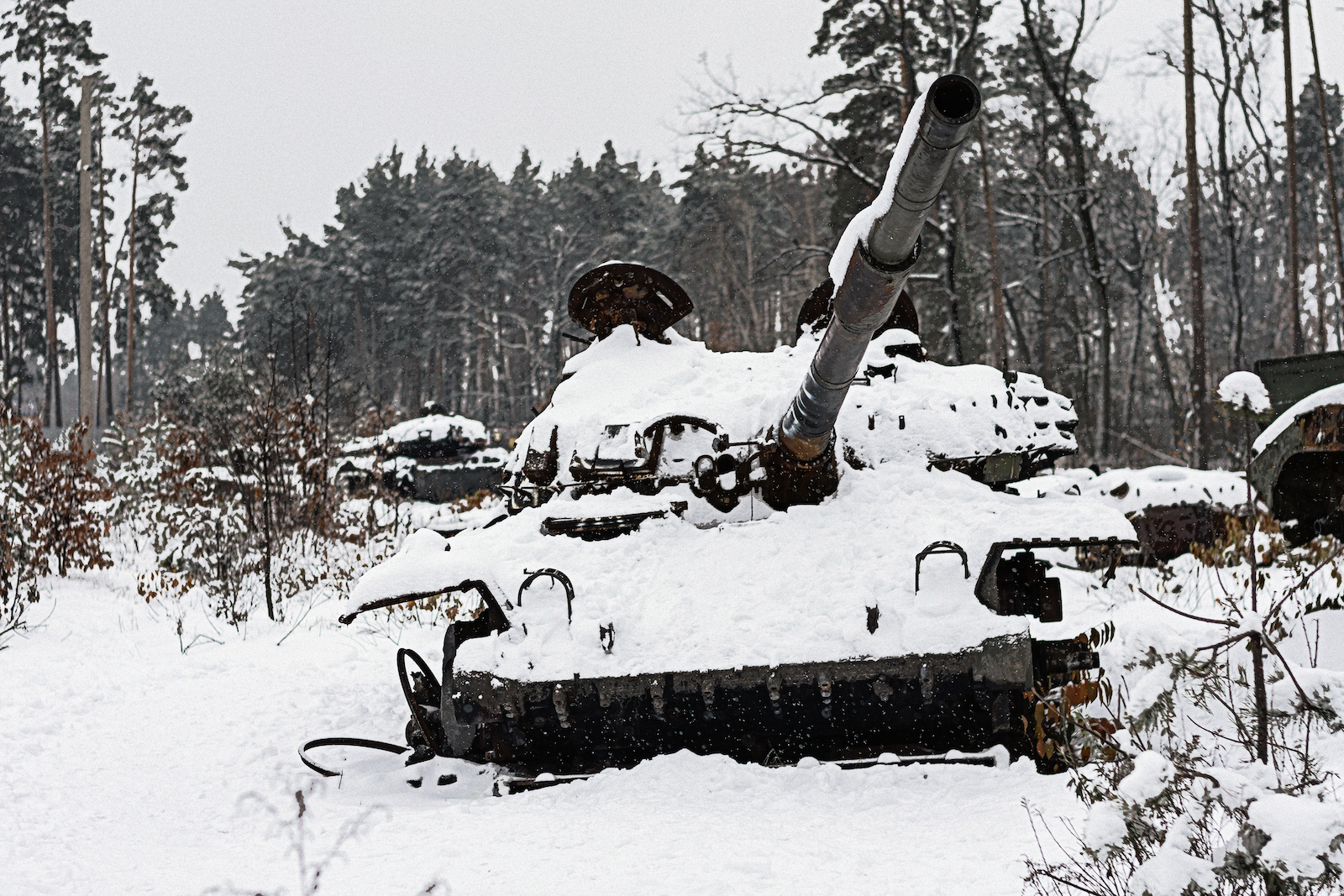
With Winter Setting In, the Private Sector Steps Up Ukraine Aid
After ten months of intense fighting, the conflict in Ukraine is entering a new phase. The “winter war” has begun, with thick mud, snowfall, and frigid temperatures complicating the battlefield on both sides. “Putin is now trying to use the winter as a weapon of war against Ukraine,” NATO Secretary General Jens Stoltenberg warned recently. Indeed, as Ukrainians suffer from extensive power outages following intense missile attacks against the country’s energy infrastructure, humanitarian aid is as important as military aid to help the population survive the cold of the next few months.
Western governments have already begun chipping in, sending warm clothing and means of generating heat and electricity, but the international private sector has stepped up to the plate as well in terms of emergency relief. Businesses, non-profits, and private individuals from around the world have extended a helping hand to the millions who have had their lives turned upside-down by the brutal war.
For example, TIU Canada, a leading solar energy producer in Ukraine, recently donated supplies to Ukrainians in need, including hundreds of flashlights, sleeping mats, and postoperative medical kits. As founder and CEO Michael Yurkovich underlined, TIU Canada is endeavouring to complement the Canadian government’s efforts. “We believe in Ukraine and that is why we are providing this support now when the country is in need,” Yurkovich explained. “We are also supportive of the Canadian government’s efforts to help Ukraine including the recent announcement by Prime Minister Justin Trudeau that the government is providing $55 million to assist with winterization needs. Our efforts will complement the Canadian government’s efforts at the local level.”
The company, the first investor in Ukraine under the Canadian-Ukrainian Free Trade Agreement (CUFTA), has been present in Ukraine since 2016, where it operates three solar stations putting out 54 megawatts of power. Russian attacks on infrastructure have forced occasional interruptions in TIU Canada’s energy delivery, prompting the company to provide small generators to trusted NGOs, to allow as many Ukrainians as possible to keep the lights on.
On the other side of the Atlantic, numerous public and private entities are also stepping up their attempts to avoid a dark, power-less winter in Ukraine. Eurocities, a network of over 200 cities across 38 countries, has started a massive drive for power generators and transformers to be used in Ukrainian “hospitals, schools, water supply facilities, relief centres, shelters, and mobile phone masts.” Dario Nardella, president of Eurocities and mayor of Florence, stressed the urgency of the situation: “Winter is upon us, there is no electricity and gas, there is no time to waste.” Meanwhile, in the UK, the government has recently issued a call to action to firms in the energy industry, requesting donations of electricity-producing equipment.
Such appeals are more than welcome, as unlike with other aid requirements like clothes or medicine, where many small businesses or even private individuals can contribute greatly, meaningful energy equipment can usually only be provided by a handful of entities, such as state actors or large companies. Regardless, everyone is trying to help in any way they can, as can be seen in actions by companies like the well-known winter apparel company Canada Goose, who recently announced they are donating 10,000 of their parkas, jackets, and accessories to keep Ukrainians warm in the coming months.
Private help is also available for Ukrainians who were displaced abroad by the war. Mere days after the invasion, high-speed rail giant Eurostar set up a scheme through which any Ukrainian citizen with a proper visa could board their trains for free from any station and travel to London, providing critical support for Ukrainians fleeing the war. Ten months later, the cross-Channel rail firm continues to provide the service. Other leading travel firms have chipped in as well—Hungarian airline Wizz Air has offered hundreds of thousands of free tickets for Ukrainian refugees in Poland, Slovakia, Hungary, and Romania, deciding in August to extend a scheme which saw the airline initially set aside 100,000 free flights for those forced to leave the conflict zone.
For all the habitual talk of individualism in business, Western companies have contributed greatly to the Ukrainian struggles, including through donations, aid, and offering their services for free. Such is the willingness of the private sector to help, that the European Commission set up an operational system meant to centralise and easily transport in-kind donations coming from businesses, with a focus on “emergency items such as medicines, medical equipment, chemical, biological, radiological or nuclear countermeasures, and shelter items.”
With winter now settling in across Ukraine, Russian President Vladimir Putin appears willing to continue strikes on Ukrainian infrastructure and attempt to win his war by keeping Ukrainians in the dark. Private businesses should continue offering whatever assistance they can to Ukrainians, particularly in fields like electricity and heating. Indeed, NATO chief Stoltenberg has recently vowed that NATO’s aid deliveries to Ukraine will not wane, and that “NATO allies had already delivered generators and spare parts to help Ukraine rebuild damaged facilities.”
These efforts indicate that to beat back Putin and support Ukraine, mere military force is not sufficient: humanitarian initiative focused on the population’s well-being and bolstered by strong support from the private sector across Ukraine’s Western allies, is increasingly turning out to be a weapon in Ukraine’s defense against Russia as well.

